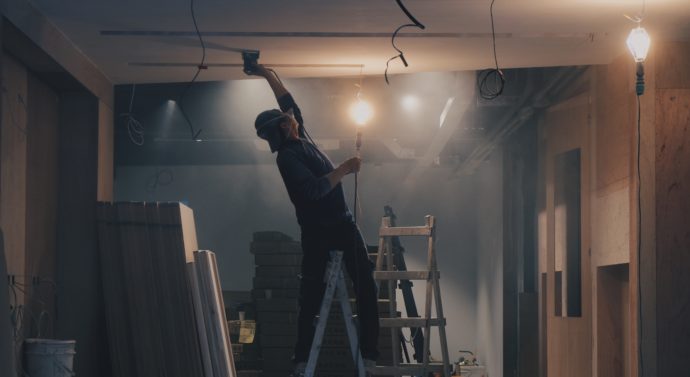
Critical basement repairs call for careful research on contractors
Editorial September 7, 2018, Comments Off 76If your basement is leaking or suffering from foundation issues, it can affect your whole house’s integrity, including structural decay, high humidity levels, and mold and mildew growth. It’s critical that you find a quality and trustworthy contractor to make these repairs — particularly after a storm, when unscrupulous contractors sometimes prey on homeowners in need.
“Consumers dealing with damage from storms and heavy rain may find that demand for waterproofing and remediation contractors will be strong,” said BBB Springfield Regional Director, Stephanie Garland. “To make sure they’re dealing with a reputable company, consumers can check out contractors with BBB.”
Research contractors carefully to find the best fit for your budget and timeline. Better Business Bureau offers BBB Business Profiles on thousands of contractors that show how long a contractor has been in business, how many complaints – if any – have been filed against the company and how the company has responded. The profile includes customer reviews and a rating from A+ to F, with F being the lowest rating BBB gives to any company. Ask multiple contractors for quotes before starting any project. BBB’s Request A Quote service allows consumers to obtain an estimate from one or more BBB Accredited Businesses.
Consider the following when hiring waterproofing and remediation contractors:
- Ask at least three companies for bids based on the same requirements. Discuss the bids in detail with each contractor and ask them about variations in pricing. The lowest-priced bid may not be the best.
- It’s important that the contractor takes time to determine the source of the leak before beginning repair work.
- Ask about the company’s insurance. Does it carry worker’s compensation, property damage and liability insurance? Ask for proof of insurance or for the name of an insurance agent you can call to verify the coverage.
- Ask whether the contractor is licensed for the type of work you need. Does the firm meet the bonding requirements of your town, county or state?
- Check with local authorities to find out whether permits are needed. The contractor should be aware of any permits or inspections that may be required.
- Ask the contractor to provide a lien waiver when the job is completed. A lien waiver is a statement that all suppliers and contractors have been paid for materials and labor.
- Ask for a contract and read it. Get any verbal promises in writing. Make sure the contract includes the start date and expected completion date.
- Don’t pay the entire amount due until the work is completed, and you are satisfied. Be careful if a contractor wants to be paid in full up front. In some cases, a contractor may need a down payment to cover materials. But the bulk of the money should not be due until the work is complete.
About BBB
BBB is a nonprofit, business-supported organization that sets and upholds high standards for fair and honest business behavior. BBB services to consumers are free of charge. BBB provides objective advice, BBB Business Profiles on more than 5.3 million companies, 11,000 charity reviews , dispute resolution services, alerts and educational information on topics affecting marketplace trust. Visit bbb.org for more information.
Article contributed by Stephanie Garland, BBB Regional Director.